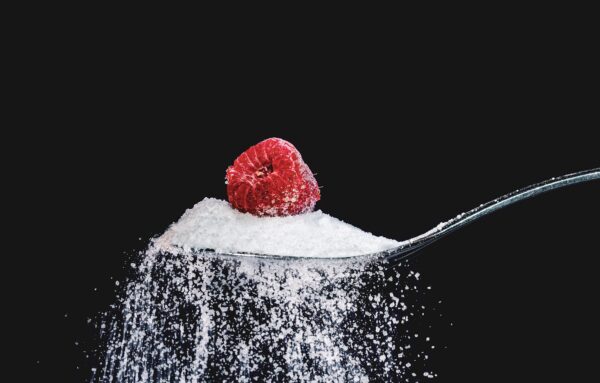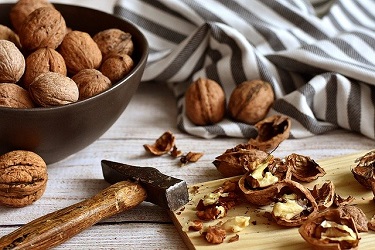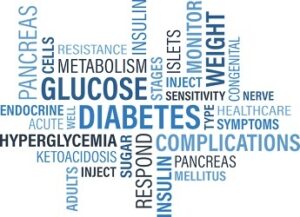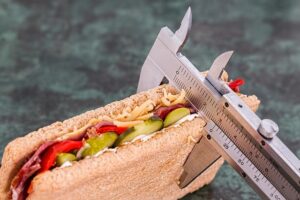
Three items recently spurred my interest in this subject. First, a month or so ago, my mother-in-law got a postcard from a realtor with a recipe for buckwheat pancakes on it. She planned to make them and showed it to me. “What’s this ‘no-carb sweetener’?” she asked. I had no idea. The recipe clearly wasn’t talking about some type of artificial sweetener that you use by the drop, as it called for something like a cupful. Hmmm. (But I did warn her that this was a vegan recipe, as it called for “flax eggs,” which you make by mixing ground flaxseed and water in proportions of 1:3 and letting the mixture sit for about 15 minutes. A perfectly good thing if you’re allergic to eggs, of course, and if you’re ethically opposed to animal products. But you don’t have to do it if you think that flaxseed is better for you than eggs. Just eat the eggs!)

 This morning on the “Happier” podcast Gretchen Rubin gave a truly shocking statistic:
This morning on the “Happier” podcast Gretchen Rubin gave a truly shocking statistic:



 Nothing stays in Vegas. That’s our starting point here: that every calorie you consume has to get used or disposed of by your body in some way. No calories simply disappear into thin air (although they may disappear somewhere else, as noted below). No calories are “free.” Every single molecule you eat must be dealt with. Your body doesn’t function like a car’s gas tank, when there’s an absolute limit of capacity that results in gasoline on the ground (and the gas station owner yelling at you) if you keep trying to outwit the automatic shutoff by “topping off” the tank and manually restarting the pump. Your esophagus doesn’t have an automatic shutoff valve. I’m not even sure where that organ would be best situated: above the larynx? Halfway between the mouth and the stomach? There’d be a food backup, I guess. Kind of gross, and maybe dangerous. You certainly can get into the “I can’t eat another bite” mode, but in reality the stomach’s capacity is very flexible and expandable. (Just ask the people who’ve had stomach-reduction surgery that leaves them with a greatly diminished stomach pouch. If they’re determined enough, they can outwit the surgery, either by eating constant small meals that don’t overstrain the new little pouch or by going ahead and eating too much. The pouch can stretch, eventually. Read about this and other dangers of the surgery at “
Nothing stays in Vegas. That’s our starting point here: that every calorie you consume has to get used or disposed of by your body in some way. No calories simply disappear into thin air (although they may disappear somewhere else, as noted below). No calories are “free.” Every single molecule you eat must be dealt with. Your body doesn’t function like a car’s gas tank, when there’s an absolute limit of capacity that results in gasoline on the ground (and the gas station owner yelling at you) if you keep trying to outwit the automatic shutoff by “topping off” the tank and manually restarting the pump. Your esophagus doesn’t have an automatic shutoff valve. I’m not even sure where that organ would be best situated: above the larynx? Halfway between the mouth and the stomach? There’d be a food backup, I guess. Kind of gross, and maybe dangerous. You certainly can get into the “I can’t eat another bite” mode, but in reality the stomach’s capacity is very flexible and expandable. (Just ask the people who’ve had stomach-reduction surgery that leaves them with a greatly diminished stomach pouch. If they’re determined enough, they can outwit the surgery, either by eating constant small meals that don’t overstrain the new little pouch or by going ahead and eating too much. The pouch can stretch, eventually. Read about this and other dangers of the surgery at “